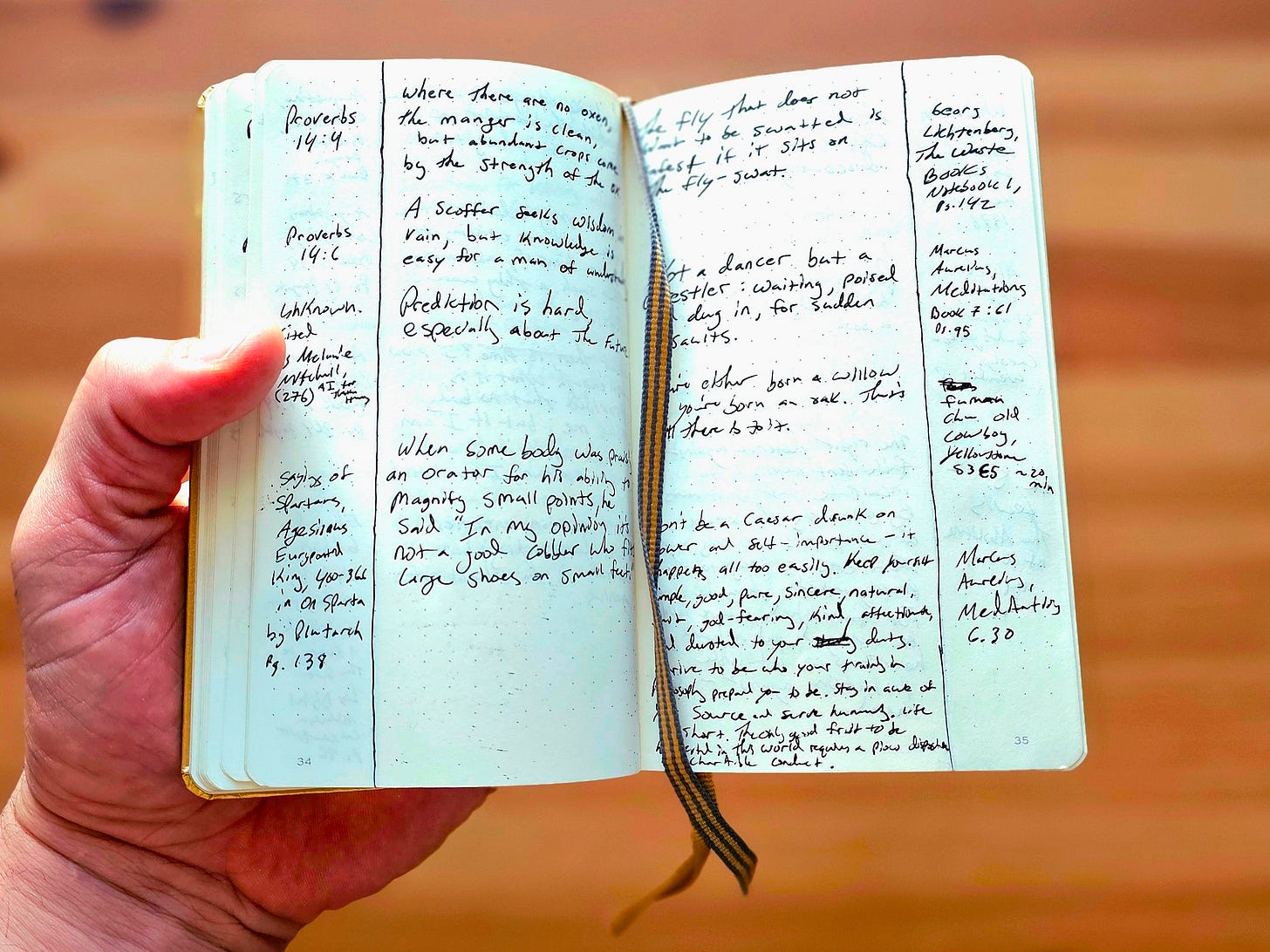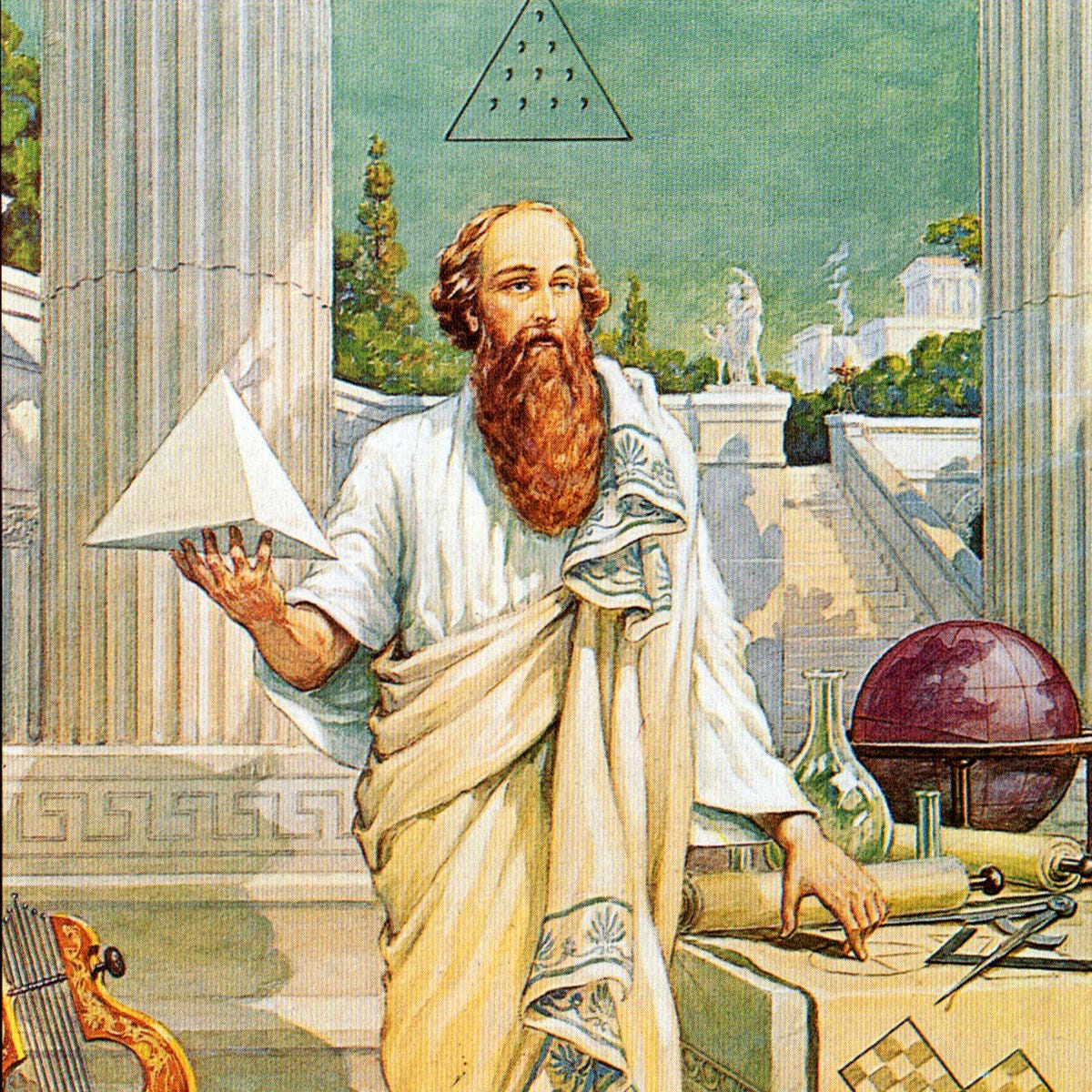For at least the past 13 years I’ve been studying philosophy. I’ve been an autodidact, lay philosopher fumbling around thinking I’ve discovered the secrets to the universe. I’ve also been a graduate philosophy student wondering if I really understand anything at all. It’s been a wild ride.
As Dr. Timothy Brookins notes, the word ‘philosopher’, from the Greek term philosophos, wisdom lover, likely started out as a pejorative term hurled against Pythagoras. It seems that initially it was meant to connote “one who wants to be wise” rather than one who is a genuine wiseman or sage, a sophos.
Pythagoras, like the true sage that he was, just ate the insult and adopted the term for himself. Sure, he was a wisdom lover, a philosopher, and what he taught was ‘philosophy’, the love of wisdom. No problem.
But today, the ‘wisdom tradition’ and the philosophical tradition(s) have come apart. Philosophers, for the most part, don’t really pitch themselves, nor even think of themselves as, sages or gurus or wisemen (or wisewomen) who try to help you live the good life anymore, and they probably shouldn’t. Philosophy is something different today, and that’s actually alright (there are a few small pockets of philosophers seeking to retrieve “philosophy-as-a-way-of-life” and that’s cool too).
Philosophy today—at least in the Anglo-American ‘analytic’ tradition—is more about learning to think rather than learning what to think. It’s more about sharpening your reasoning skills so that you can go out and think clearly about the problems you’re interested in. That’s admirable, and valuable, and we need lots and lots of it—especially today! Support your local philosophers—and your non-local philosophers! Just support philosophy, we all need it.
But if you want to find wisdom, that is, the stuff you should think, you don’t go into academic philosophy. So where do you go? How does one find wisdom?
Well, as the book of Proverbs tells us, the beginning of wisdom is this: Get wisdom! And whatever you get, get insight! (Proverbs 4:7)
So if you want to find wisdom, the first step is to start looking for it.
In this post I’m going to show you 4 ways to find wisdom: 2 ways to find wisdom from others and 2 ways to find wisdom from yourself. Here’s the breakdown:
Finding Wisdom from Others
Gleaning Wisdom from Art, Media, and ‘Content’
Soliciting Wisdom from Everyday-Sages in Your life
Finding Wisdom from Yourself
Logging Your Experiences and Abstracting Wisdom from Them
Generating Your Own Wise Sayings from Your Thoughts
Reminder: you can support my mission to promote the life of the mind AND you can get tons of members-only content for a few dollars a month. Content like:
full-length notebook philosophy essays/tutorials where I share in-depth instructions on how to use various notebook methods and the philosophers who inspired each method
members-only access to For the Love of Wisdom entries (my digital intro to philosophy text book)
members-only access to Sayings of the Sages, my digital commonplace book of wise sayings I’ve collected over my years of studying philosophy and culture
access to our Zoom Book Club sessions where we discuss the read-along books and my companion essays
the full catalog of members-only essays + lecture videos
access to the members only chat
and lots more!
But before we jump in, I am going to do the pedantic analytic philosopher thing and ask “what do we mean by ‘wisdom’?” If you’re going to go out and find it, we should at least know what it is we’re looking for.
What is wisdom?
There are plenty of different ways to define it, characterize it, or otherwise point it out. I’ll have more to say about definitions of wisdom in future posts, but for now let me just share my favorite definition, which happens to be the one my dad has repeated indoctrinated me with ever since I was a kid:
Wisdom is the proper application of knowledge.
It may not be perfect, but it’s a pretty good definition. So you have knowledge of something, right? That’s great, but can you apply that knowledge in the right way and at the right time in order to live well? If so, then you’ve got yourself some wisdom. If not, then you don’t.
I tend to think of a triad of knowledge, wisdom, and understanding. Knowledge is like the basic building block or material. Wisdom is the proper application of that knowledge—maybe the building? And then understanding is something like knowing-why—the schematics?—it’s not a great analogy. But understanding is knowing-why a particular item of knowledge (a proposition, say) is true, not just that it is true. ‘Understanding’ gets why the application of that knowledge in that way constitutes wisdom or is the wise thing to do.
I think you can have knowledge without wisdom. We all know super smart and knowledgable people who’ve made a shipwreck of their lives, and hence aren’t wise. You can likewise imagine knowing a truth, and applying that truth in the right situation at the right time while not fully understanding the mechanisms at play or the deeper principles at work. You might know it’s good to invest, and you might wisely entrust your financial manager to invest your money, and yet you may not fully understand compound interest, for instance.
But more on the relations between wisdom, knowledge, and understanding in future posts.
Let’s jump in with way #1 for finding wisdom from others.




